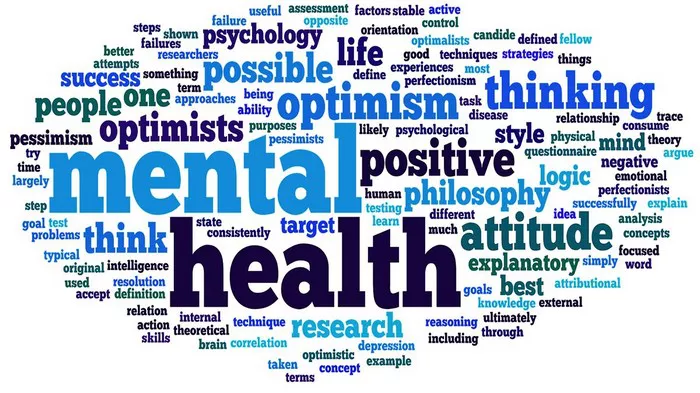In a recent review conducted by a team at Johns Hopkins Children’s Center, researchers have concluded that certain video games designed as mental health interventions can serve as beneficial—albeit modest—tools for improving the mental well-being of children and teenagers struggling with anxiety, depression, and attention-deficit/hyperactivity disorder (ADHD). The findings were published in a report appearing in JAMA Pediatrics, which examined studies from peer-reviewed journals conducted between 2011 and March 20, 2024.
An alarming 20% of children and teenagers aged three to 17 in the United States are affected by mental, emotional, developmental, or behavioral disorders. Additionally, a report from the Agency for Healthcare Research and Quality indicated that suicidal behaviors among high school students surged by over 40% in the decade leading up to 2019. The COVID-19 pandemic has further exacerbated these issues, with evidence suggesting a worsening of mental health trends. Despite an increased interest from parents and caregivers seeking mental health care for their children, the availability of services remains a significant challenge, with wait times for appointments on the rise.
Dr. Barry Bryant, a resident in the Department of Psychiatry and Behavioral Sciences at Johns Hopkins University School of Medicine and the study’s first author, emphasized the scale of the problem: “We found literature that suggests that even doubling the number of pediatric mental health providers still wouldn’t meet the need.”
To explore the efficacy of “gamified digital mental health interventions”—video games crafted specifically to address mental health challenges—the research team analyzed their application in randomized clinical trials involving children and adolescents. Dr. Bryant, alongside child and adolescent psychologist Dr. Joseph McGuire, identified 27 such trials conducted globally, which collectively included 2,911 participants—approximately equally split between boys and girls aged six to 17.
The interventions varied in design, all aiming to treat ADHD, depression, and anxiety. For instance, games targeting ADHD often involved activities that required players to split their attention across multiple tasks, while those focused on depression and anxiety utilized game formats to teach psychotherapy concepts.
These games were accessed through various platforms, including computers, tablets, video game consoles, and smartphones, with some requiring specific access through research teams involved in the studies.
The outcomes measured in the studies varied, but the Johns Hopkins team standardized effect sizes using a random-effects model. This methodology allowed them to determine when the interventions were more effective than control conditions. The analysis revealed that video games designed for ADHD and depression produced a modest reduction in symptoms (both with an effect size of 0.28), indicating improvements in attention span and a decrease in feelings of sadness, based on feedback from participants and their families. Notably, this effect size is considered small when compared to in-person interventions, which typically yield moderate (0.50) to large (0.80) effects.
In contrast, video games designed to alleviate anxiety demonstrated minimal benefits, with an effect size of just 0.07, indicating little to no impact on reducing anxiety symptoms among participants.
The research team also explored factors that might enhance the benefits derived from digital mental health interventions. They found that specific elements related to the delivery of video games—such as the use of computers and the implementation of preset time limits—alongside participant demographics (notably, a higher male participation rate) positively influenced therapeutic outcomes. These insights suggest potential avenues for improving the currently modest symptom relief associated with these interventions.
Dr. McGuire commented on the implications of the findings, stating, “While the benefits are still modest, our research shows that we have some novel tools to help improve children’s mental health—particularly for ADHD and depression—that can be relatively accessible to families.” He advised pediatricians that gamified mental health interventions might serve as effective preliminary steps for children awaiting individual therapy.
The review, however, did not elucidate why certain video game interventions were more effective than others. Moreover, many trials employed outcome measures reported by parents or children, rather than standardized clinician evaluations. The studies also lacked uniformity in examining critical factors, such as particip
ant engagement and social activities, which could have affected treatment outcomes. Furthermore, the researchers noted that some video games involved in the studies were not readily accessible, either being behind paywalls or not available online.
While acknowledging concerns regarding video game addiction and excessive screen time, the researchers highlighted that children participating in structured, time-limited gameplay tended to achieve the best results. Dr. Bryant remarked, “If a child has a video game problem, they are often playing it for several hours a day, as opposed to a gamified digital mental health intervention that might be 20 to 45 minutes, three times a week.”
The authors of the study emphasize the importance of diversifying treatment options for addressing the increasing demand for child mental health care. “I think having many tools in the toolbox can be helpful to confront the increasing demand for child mental health care,” Dr. McGuire stated.
Morgan Sisk from the University of Alabama at Birmingham also contributed to the study. As the field of mental health care continues to evolve, these findings underscore the potential for specially designed video games to serve as supplementary tools in supporting the mental well-being of young people facing various psychological challenges.
You Might Be Interested In:
-
Black Farmers Face Specific, Outsized Challenges in Rural Mental Health Crisis
-
Increase in 911 Mental Health Calls Routed to NYPD Alternative, Yet Police Still Handle Majority

